The drama of Peru's Covid orphans
- Published
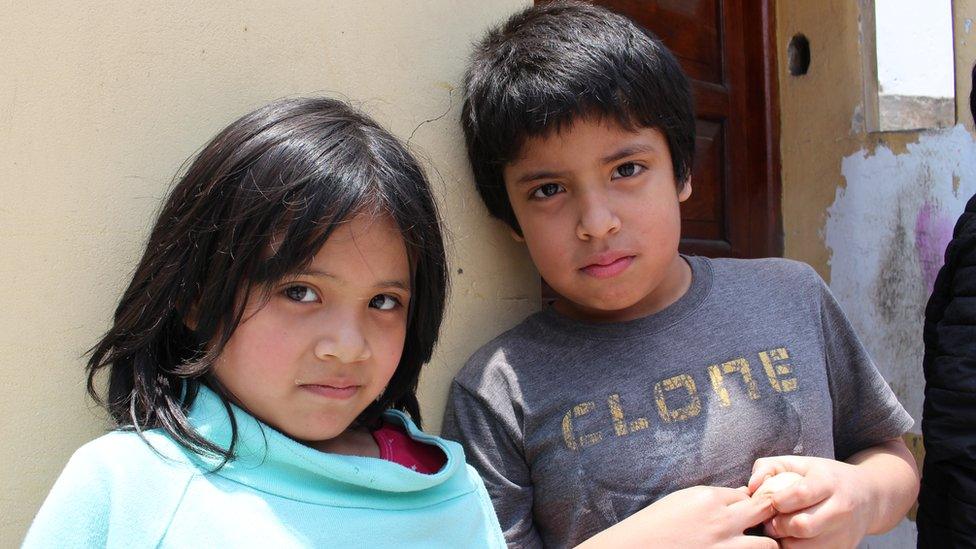
Katherine's children, like many others, find it hard to talk about their late mother
In a tiny house on the outskirts of Lima, Gabriela Zarate lives with her husband and eight children. Four are her own. The other four, two girls aged seven and 15, and two boys aged nine and 12, are the children of her younger sister, Katherine.
It is hard to squeeze them all in. The boys sleep two to a bunk bed, with the girls sharing a tiny room at the back of the house. "It's always been a struggle to put food on the table for my family," Gabriela says, "and with four more children it's even more difficult".
In June 2020, when Peru was already struggling to contain Covid-19, Katherine got infected. Hospitals were overcrowded, supplies had run out and relatives watched their loved ones die, unable to help.
When Katherine was turned away by doctors, Gabriela was left with no other option than take her home. Katherine was laid out on a mattress. She struggled to breathe, but her family did not have enough money to give her oxygen. They all watched Katherine, who was 29, get weaker and weaker.
A week later she died.
One of the last things Katherine did was to ask Gabriela to look after her children. Their father suffers from health and addiction problems, and is in and out of their lives. Katherine did not want them to end up in a children's home, so Gabriela agreed to care for them.
It has not been easy. When the government imposed a strict stay-at-home order during the worst waves of the pandemic, they were left wondering what they would do. "I used to drive a motor taxi and sell sweets out on the streets," Gabriela says. "But then we were told to stay at home, and I got worried: How were we going to feed them all?"
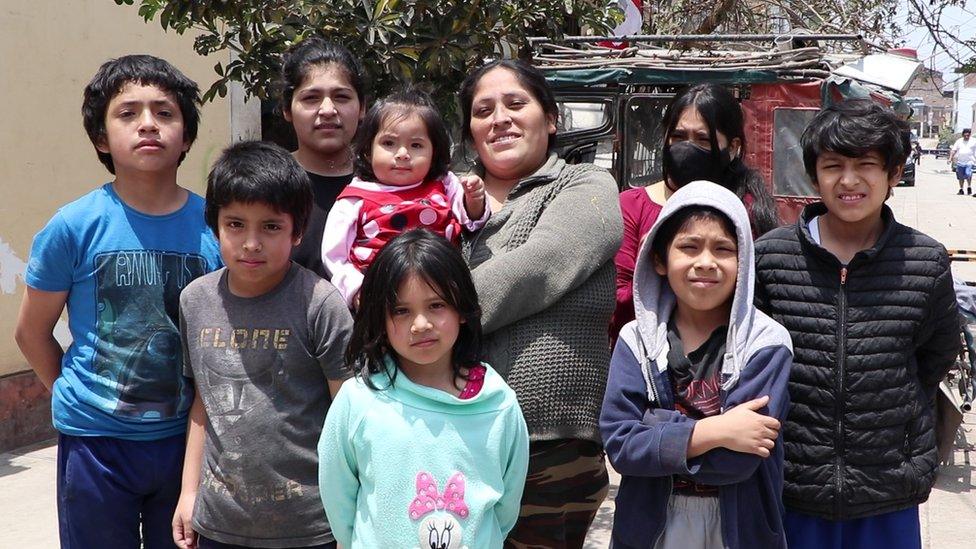
Gabriela now takes care of eight children: four of her own and the other four of her sister, Katherine
To earn some money, her partner started to deliver food to people during the curfew, which was illegal. That is when he, too, got Covid-19 and could no longer work. "We were very scared he might die," she says, "but in the end he recovered."
During the worst times, when neither of them could go out to work, Gabriela hung a white flag outside her house to show she needed support. Neighbours then started to bring her sacks of potatoes and other food.
Peru has been battered by Covid-19, with more than 202,500 deaths in a population of under 33 million. One of the most tragic effects of the pandemic here is the number of children who have been left without a mother, father, or some other caregiver.
Listen to the documentary Peru's left behind children on BBC Radio 4
Hear more episodes of Crossing Continents on BBC Sounds
There are at least 93,000 of them, according to the medical journal The Lancet. And even though one of their parents might still be alive, they are referred to as "Covid orphans".
Many face a daily struggle to survive. Financially and emotionally too.
Katherine's children, like many others, find it hard to talk about their mother. Her 15-year-old daughter watched her die, and Gabriela says she is traumatized. She will not talk about what happened to anyone.
The sons remember her wistfully. "I miss my mother," Katherine's nine-year-old son says. "She used to take us out onto the streets to play with us."
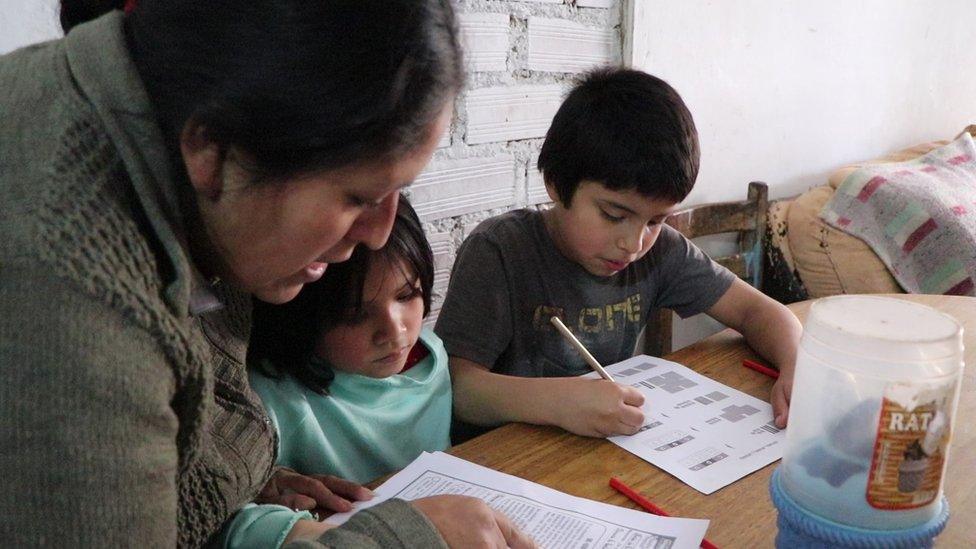
The children are doing online classes for two days a week
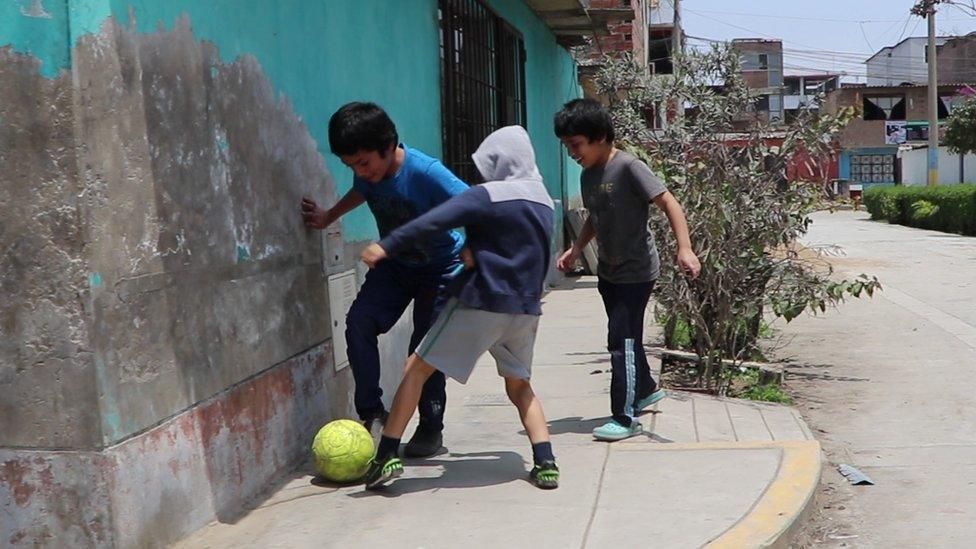
Despite missing their mother, the children say they like living with their aunt
Helping children like them is an issue which professionals like Andrea Ramos are trying to tackle. She is a social worker for the local council in two poor areas of Lima. Her desk is piled high with paperwork, and she relies on locals to get in touch with her via WhatsApp to flag up who needs help.
Poverty, she says, is getting worse due to rising unemployment because of the pandemic. This, in turn, is leading to more frustration and violence at home.
"We have a lot of children with mental health issues who are scared to go out because they have been shut inside during the worst waves of the pandemic," she says.
There are workshops to help families cope with children being at home all day long with on-line classes, and how to resolve fights and keep tempers under control.
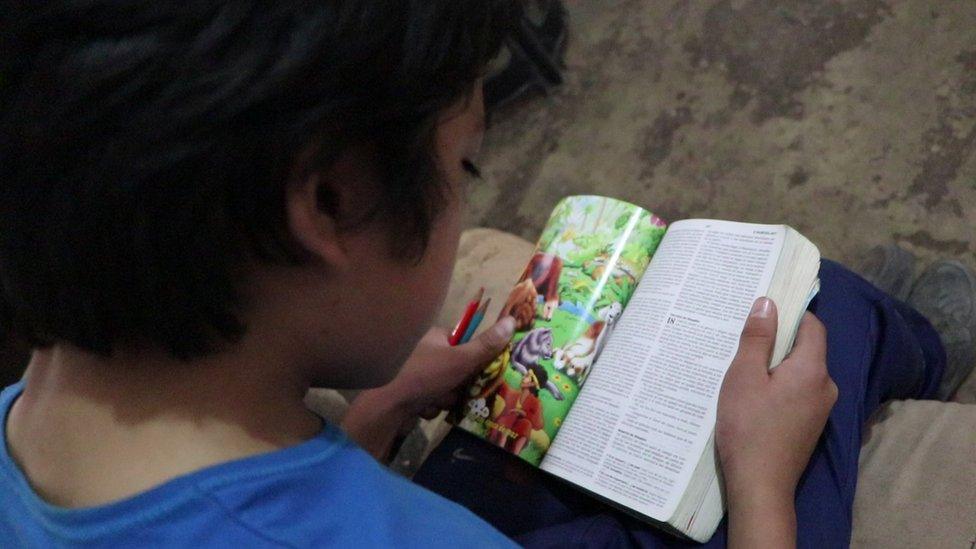
Professionals are concerned about the long-term effects of the pandemic on children
For some families, life is slowly getting better. Gabriela now receives a government-approved Covid pension for each of her nephews and nieces. It is only around $50 (£37) a month per child, but it means she can afford to buy extra food for them, and to print out pages for their homework.
The children are doing online classes for two days a week. It is difficult to find space for everyone. Despite missing their mother, they say they like living with their aunt. It is fun to play football out on the street with their cousins even though they end up arguing sometimes.
IN CHARTS: Tracking the pandemic
Although professionals like Andrea are concerned about the long-term effects the pandemic will have on "Covid orphans", Gabriela's nephews and nieces are ambitious for their future. The eldest girl wants to be a lawyer, the two boys policemen and the little girl a doctor.
Related topics
- Published1 June 2021
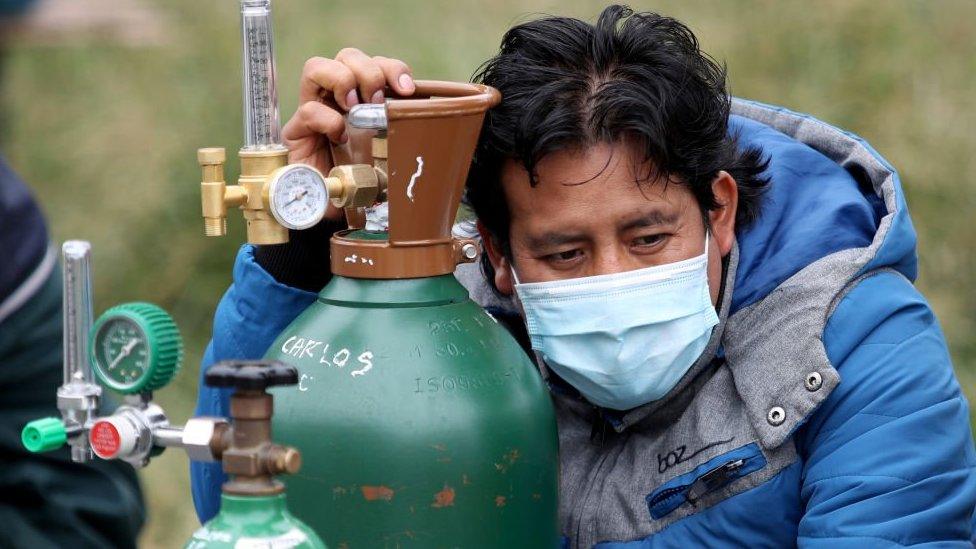
- Published5 July 2022
